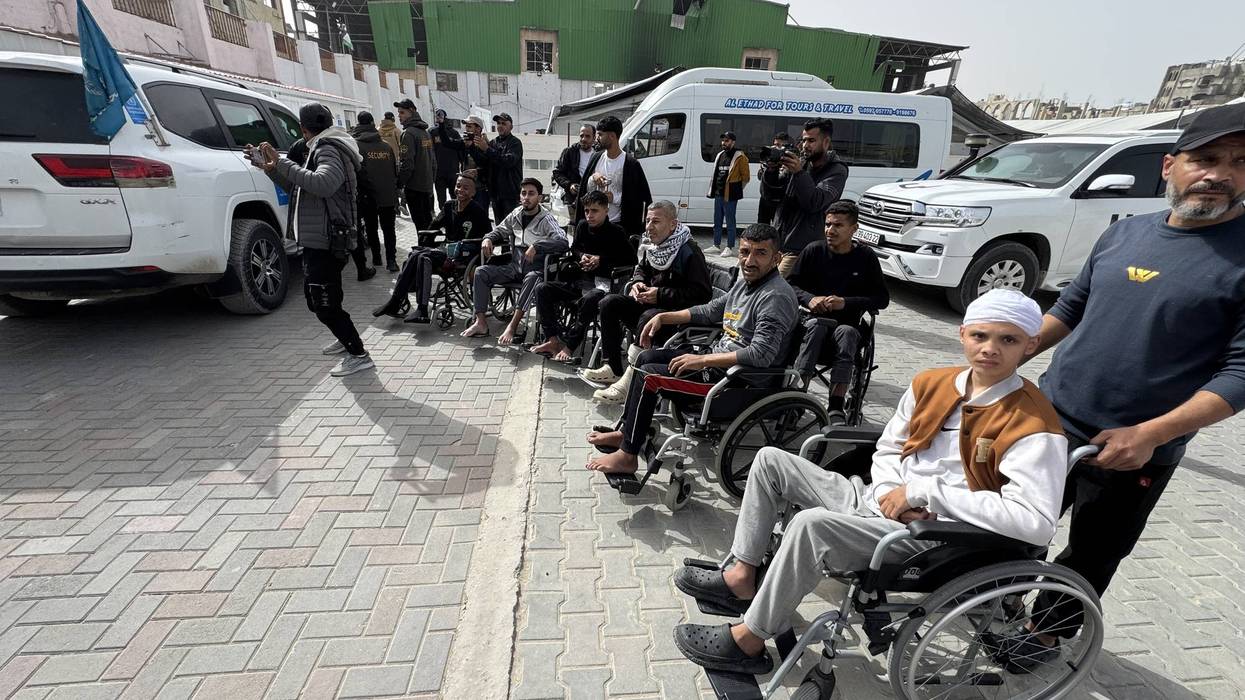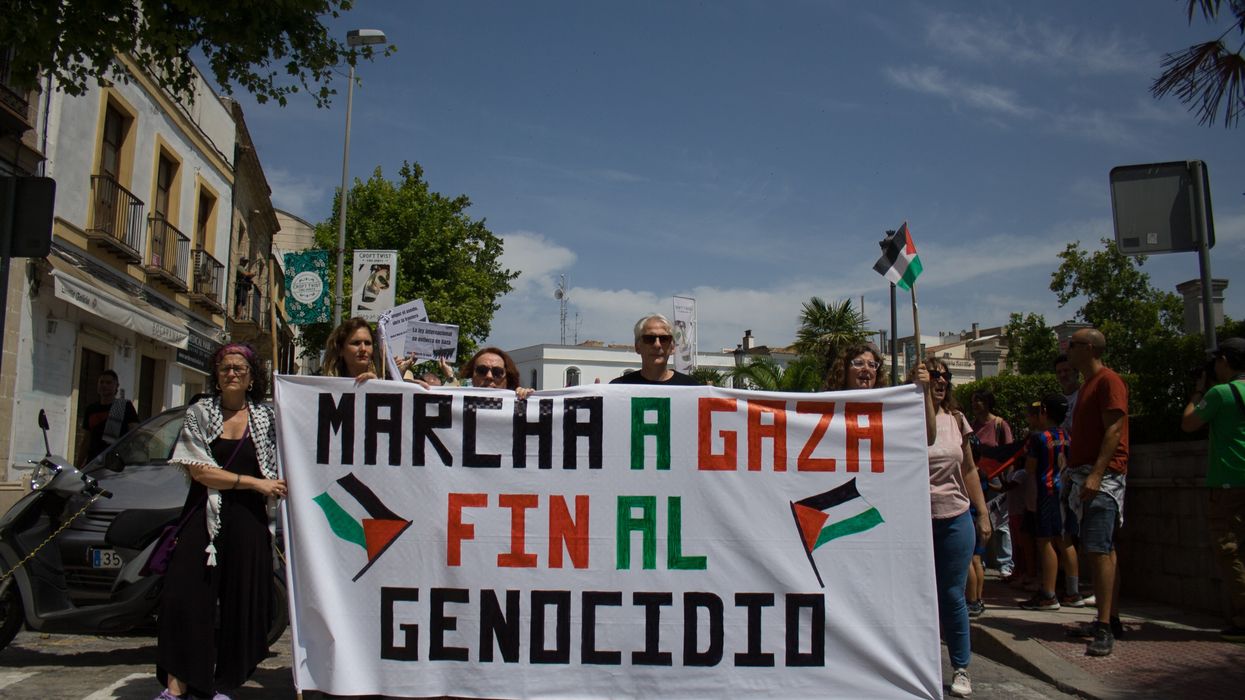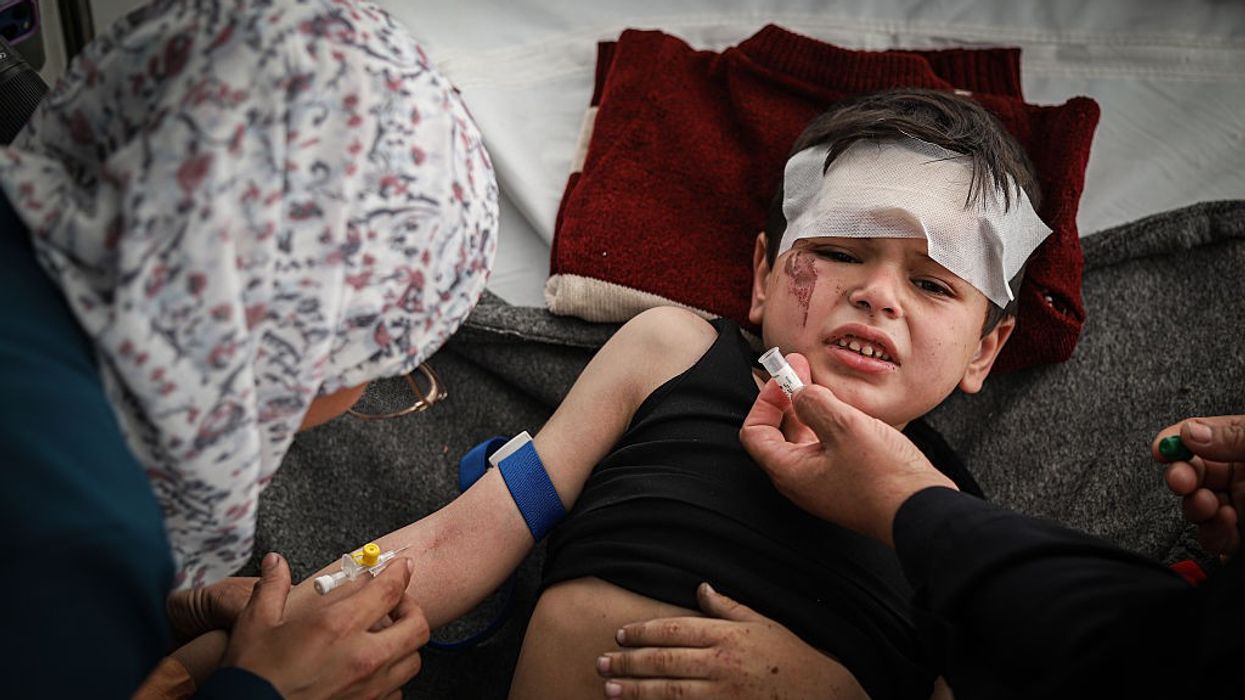I had never done anything of this nature before, and I felt frightened and overwhelmed at times as I struggled with the decision of whether to go; I had to push past fears and doubts on numerous occasions, but the sense of necessity and the dire nature of the situation kept me moving forward. I was blessed to have found someone to share a hotel room with before arriving, and she and I were supportive of each other both before and after arriving in Egypt.
The first day we were there, June 13, 2025, we had initially been scheduled to meet at an agreed-upon location in Cairo, board buses to al-Arish, and then again seek permission to march from there to Rafah. However, the plan changed for reasons we weren’t fully aware of (I suspect that the Egyptian authorities were making things difficult for the organizers, and it may have been difficult to find drivers for the buses given the heavy surveillance under which Egyptians must live). In any case, we were instructed to make our way in small groups to the town of Ismailiyya, an hour and a half from Cairo, where we hoped to meet and plan next steps.
In the days that followed, it became clear that we were, indeed, being watched and followed, and scores of activists from various countries were detained and deported.
Three of us set out in a taxi for Ismailiyya, but when we came to the first checkpoint along the road, we were not allowed through. We were told we would have to surrender our passports for some reason. Many non-Egyptians were standing around a nearby building, and it became apparent that they had handed over their passports and had been waiting for them for hours, but to no avail. Some of them warned us not to hand over our passports for fear of not getting them back. Our taxi driver had had his license pulled, and I think he was questioned, though of course he had no clue about anything!
Eventually, the taxi driver got his license back, and we were urged to go back to Cairo. However, we felt as though it was our moral obligation to stay with all the would-be marchers who were stranded without their passports, so we stayed with them instead. The hours went by, and a sense of community began to develop among the people there. At one point, some military vehicles drove up and parked, and very young-looking armed soldiers got out and basically just stood there watching us.
Still more hours later, some of the would-be marchers said, “Well, everybody knows why we’re here, so we might as well demonstrate openly for Palestine!” So, cheers for a free Palestine went up, and speeches were delivered in French, English, and some other languages. Meanwhile, the Egyptian authorities had sent out several military buses and were urging people to get on them to be taken back to Cairo. People were not doing so, however. Eventually, at 7:00 pm local time, plainclothes policemen—thugs, essentially—began lunging at certain individuals, the ones they could see were in leadership positions, and they physically assaulted several of the men, dragging them across the pavement. Others of us locked arms and sat down, but the thugs kept coming at people, knocking a woman violently to the ground and stealing her phone. They were demanding that we get on the buses, which we then did.
They were prisoner buses, with tiny windows at the very top that don’t allow you to see out. I, along with four other women from the American delegation, managed to stay together as we got on one of the buses. We waited for around two hours on the bus, sweltering in the heat, while very gradually, people whose passports had been taken from them got their passports back. Once we were driven off, we expected to be detained and deported. But when we had been traveling in the bus for around an hour heading back to Cairo, we were told that we would simply be let off the bus, five at a time, in locations around Cairo.
We learned that Egypt is indeed a police state, and a gathering of even as few as four people to protest the government is illegal. It was a sobering lesson, and it caused me to feel unwilling to engage in any outward actions that might jeopardize either myself or my group or the local population.
In the days that followed, it became clear that we were, indeed, being watched and followed, and scores of activists from various countries were detained and deported. The crowning act of hostile intimidation by the Egyptian authorities was the arrest, temporary disappearance, and abuse of the Global March’s initiator and lead organizer. Our people were being warned to leave the country, and many of us changed our travel plans to depart earlier than planned.
The lesson: Egypt is in full “compliance” with Israeli directives, fully complicit in its crimes toward the people of Gaza, and never had the slightest intention of allowing the march of solidarity we had hoped to carry out.
As people began leaving the country, a last-minute initiative materialized, namely, that of traveling to Tunisia, whose government and population are nearly all pro-Palestine, to meet with participants in the Sumud overland convoy that had made its way to Egypt’s western border but, not surprisingly, had not been allowed entry. Some of their party might also have been detained at the border (though I’m not sure about this). By the time this initiative emerged, I had already changed my travel plans once, and since the details weren’t very clear to me, I decided simply to head back home.
Now that I am home, I am hoping to become more involved in an initiative that has begun to bypass the United Nation’s useless Security Council by passing a General Assembly resolution that would demand concrete measures such as sending a U.N. peacekeeping force into the occupied Palestinian territories at the request of the State of Palestine, breaking the deadly blockade on Gaza (obviously), calling on countries around the world to jointly boycott Israel on all levels, reopen the apartheid committee, strip Israel of its U.N. credentials, and carry out comprehensive embargos of Israel—pushing individual countries to take this last action in particular. It’s the least we all can do.




